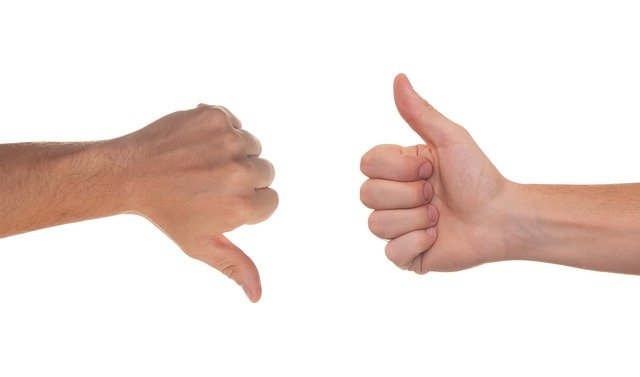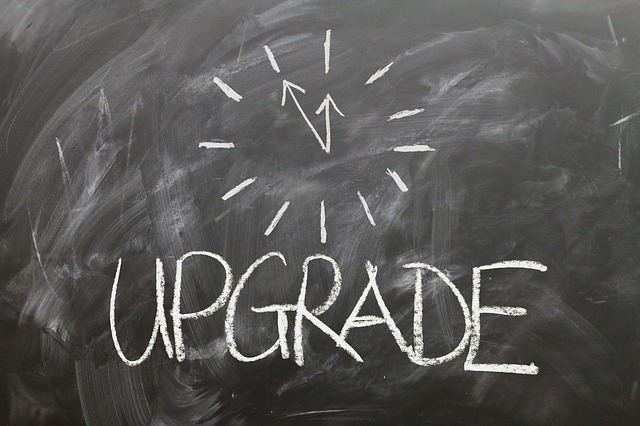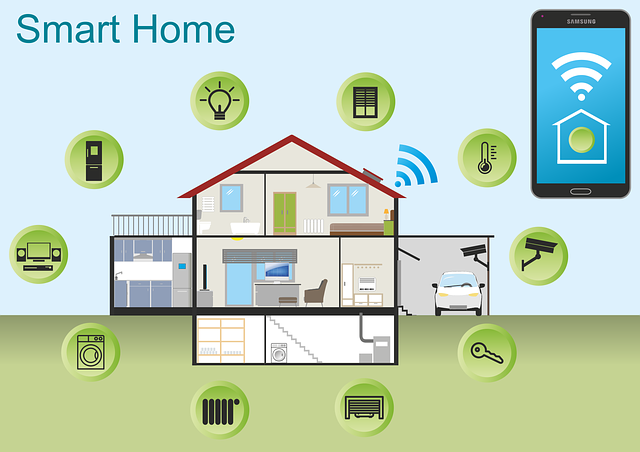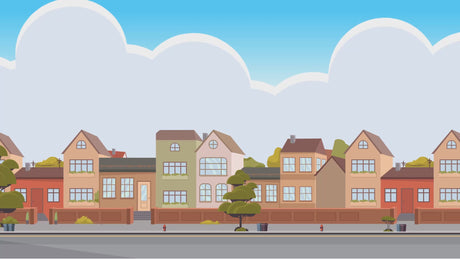In this article we'll discuss some of the promises that Matter aims to deliver to both existing smart home devices and future products in the smart home world.
What Is Matter?
First things first, what exactly is Matter? Or is it CHIP? Or CHoIP? Or "Project Connected Home over IP"?
No it's definitely Matter! The new "foundation for connected things" from the Zigbee Alliance ..... no wait, they've got a new name too .... the "connectivity standards alliance" .... or should that be the "CSA - internet of things"?
Or should that be the "CSA (but no Z-Wave soup for you)"?
Another day, another "one protocol to rule them all" claim with all the usual promises and marketing fluff around how your Home Automation system will benefit, but what actually is the Matter protocol?

According to the Matter web site itself, Matter is the foundation for connected things and is an industry-unifying standard that delivers reliable, secure connectivity and is a seal of approval that devices will work seamlessly together, today and tomorrow.
So it's a "seal of approval", like HomeKit? Or UpNP? Or "Works with Nest"? Or "Works with Alexa"? Or "Friends of Hue"? Or "Works with SmartThings"? Or any of they other "all your base are belong to us" labels that have been banded around the Smart Home sector for the last 20 years?
As far as we can tell, from the consumer / end-user point-of-view, that's about the long and the short of it. You'll be able to buy products that show the Matter logo and be confident that they work out-of-the-box together without any of the dreaded compatibility issues.
What Is Z-Wave?
Simply put, Z-Wave is a wireless communication technology that uses reliable, low-power radio waves that easily travel through walls, floors and furniture, meaning you don't have to rip-up carpets and floors to add new wiring.
Using Z-Wave allows Smart Devices such as light bulbs, sockets, plugs, smart locks, motion sensors and door sensors to communicate with each other. Features such as two-way communication, status updates and mesh networking combine together to ensure reliability and resiliency in your Smart Home System - no more wondering whether the light in your garage really turned off when you closed the door!
Unlike most other Smart Home technologies, Z-Wave has been around for over 20 years and with this maturity comes long-term testing, reinvesting, and revolutionizing of home automation. Z-Wave has the largest and most diverse ecosystem on the market with over 3000 products from hundreds of different leading manufacturers!

What's The Matter With Z-Wave?
You'll no doubt have noticed our tongue-in-cheek comment at the top of this article with respect to Z-Wave, but the bottom line is that Z-Wave seems to be conspicuously absent from anything to do with Matter!
Logically you'd have thought that with Z-Wave being one of the major Smart Home ecosystems, it would have sat at the same level as the other network layers in the pyramid? Could it be that the "connectivity standards alliance", historically being a competitor to the Z-Wave communications protocol under the name of the "Zigbee Alliance", simply don't want to include Z-Wave and other protocols within the ISM ("industrial, scientific and medical") bands?
Trying to find what that means in the real world seems impossible right now, there's a single cryptic article on the Z-Wave Alliance web site that seems to suggest they agree with the principles of Matter, but they've already been doing the same thing and following all these principles themselves for the last 20+ years ..... that seems like a bit of a dig at Zigbee to us!
From the diagram presented on that page it would appear that they are suggesting that Z-Wave will simply sit alongside the Matter ecosystem and be interoperable with it via your Z-Wave controller / gateway. So as long as your SmartThings controller "Works with Matter" then by extension your Z-Wave devices also "Work with Matter".
Does Matter Replace Z-Wave?
Nope, not as far as we can see ..... there's not even a fully ratified standard yet, just vagueness and opaqueness as to what the Matter protocol even covers. The best we can tell from the "Build With Matter" web site is that it's more of an upper level, application layer, that aims to communicate with all devices over the IP (Internet Protocol) networking protocol with the first specification (not yet released) due to run on WiFi and Thread network layers but use Bluetooth Low Energy for any commissioning process.
Looking at the "readme" from the "Connected Home IP" GitHub page (more names, "project chip, "connected home ip" ... guess these still need to be updated), Matter sits at the top of the pyramid over TCP / UDP and IPv6 and interestingly covers many other transports such as DSL, Cellular and DOCSIS.

Confusingly though "Thread" is listed separately to "802.15.4" even though it, itself, is based on 802.15.4. So does the 802.15.4 blanket also cover Zigbee and other 802.15.4 based protocols such as 6LoWPAN, SNAP and WirelessHART?
Presumably so, but given that these Home Automation devices aren't directly connectable to the TCP / UDP network that you already have in your home via WiFi or Ethernet, you're still going to need A.N. Other bridge / gateway to use them.
Is Z-Wave Compatible With Matter?
Not directly, because as mentioned above, Z-Wave is a radio protocol in itself and isn't directly connectable to the TCP / UDP network.
So your "Works with Matter" Innr or LEDVance Zigbee LED bulb isn't actually going to work with your "Works with Matter" Somfy 433MHz RTS Blinds or your "Works with Matter" Z-Wave Motion Sensor, because none of these are directly IP addressable, without several other gateways to connect them together.
Perhaps there'll be a future Matter+ standard to denote Matter compatible devices that work directly with each other?
When Can I Buy Matter Devices?
Smart Home brands are already planning on bringing Matter support to their future devices, with many manufacturers pledging support to the new standard. Google and Amazon have both pledged that their voice assistants will support Matter and the likes of Samsung SmartThings have suggested that their hub will also adopt Matter via a software update.
As to when you'll be able to buy smart devices that offer Matter compatibility, your guess is as good as ours! The first Matter-certified connected devices were originally planned to launch in 2021 but this target has already been moved several times. The latest news is that smart home ecosystems will be able to benefit from the Matter standard some time in late 2022.
Looking at our crystal ball and based on previous history, we would expect this to slip again, with perhaps a launch coinciding with the CES technology event in early 2023. So it will be a while before Matter devices hit the shelves.
What About My Existing Smart Home Devices?
Philips Hue have already announced that they'll simply update the Hue Bridge with Matter to allow their existing devices to work with the new protocol, so you'll still need a Hue Bridge! But what about future products? Will they abandon Zigbee and move entirely to support Matter?
We doubt that very much and reading between the lines other manufacturers will be doing the same because for manufacturers that aren't already in the WiFi device space, there doesn't seem to be much commitment to move away from what they already do.

So their products will be supporting Matter, but not directly, only via their own gateway / hub / controller. So really, is that any different from an Aeotec Z-Wave MultiSensor saying that it "Works with Google Assistant", as long as you have a SmartThings Smart Hub? Or a Philips Hue bulb saying it "Works with Alexa Devices" if they have a Zigbee controller built in? Or a Xiaomi device that "Works with Apple Homekit" as long as you have the Xiaomi bridge?
Perhaps this will change in the future? Or perhaps the future will bring a Matter "gateway" that houses all the physical network layers that Matter promises to work over to bring together all these different ecosystems? Perhaps at that point you'll be able to buy any "Works with Matter" device - whether it be a laptop, a streaming TV, a WiFi doorbell, a Bluetooth cat-flap, a Zigbee LED bulb, a 6LoWPAN light switch, or any of a million other devices (not necessarily just Smart Home related) - and it will just work .... a lofty goal for Smart homes!
Should I Wait To Start My Smart Home Journey?
As it stands today, we don't believe anything has changed, nor will it change in the foreseeable future, likely nothing tangible over the next couple of years.
As with most of these initiatives there's usually a huge flurry of initial activity with manufacturers jumping on board, keen to be seen to be taking part and getting on board with the ideas and getting caught up with the initial hype.
As things progress though you usually see how the initiative is going to take shape - you can already see this with Matter, first launched as CHIP or CHoIP or whatever it was called way back in 2019 and only now, nearly three years or so later, is it getting mainstream attention from some of the big players.
If you think we've misunderstood Matter, then that's certainly a possibility, but we've read hundreds of articles and watched a number of key videos discussing the new initiative and the overall impression currently is just so vague - you can hear this type of verbiage throughout - "it should work", "it may work", "should work together", "we expect", "it is intended to", etc.
If this is all sounding really familiar and invoking that tingly deja-vu feeling, then perhaps you too are remembering "AllJoyn" .... who went on to become "IoTivity" .... and then merged with the "OCF" ("Open Connectivity Foundation"). If you read their mission statement, doesn't it sound remarkably similar to that of Matter? And there are some pretty big players in their membership list too and given they've been around since 2014, have you ever seen a smart device with an "OCF" label on the box? Nope, us neither.
Does Matter Matter?
So our final word on this Matter is essentially: It don't Matter now and it probably won't Matter later, either.
At the end of the day, the end-user, the consumer, will just buy what they buy. They'll be guided by whatever "compatibility" labelling is prevalent at the time, whether that's "Works with SmartThings", "Hubitat Compatible" or "HomeKit" as it is today, or whether devices of the future have a big Matter sticker on them, or a big OCF label on them. Or something else that comes along in the next few years and is hailed as being the next game changing innovation in standards.
As always though, Vesternet will be at the forefront of Smart Home again, offering Matter Home Automation devices if and when they become available, alongside all the existing familiar Zigbee and Z-Wave devices that we currently stock!









